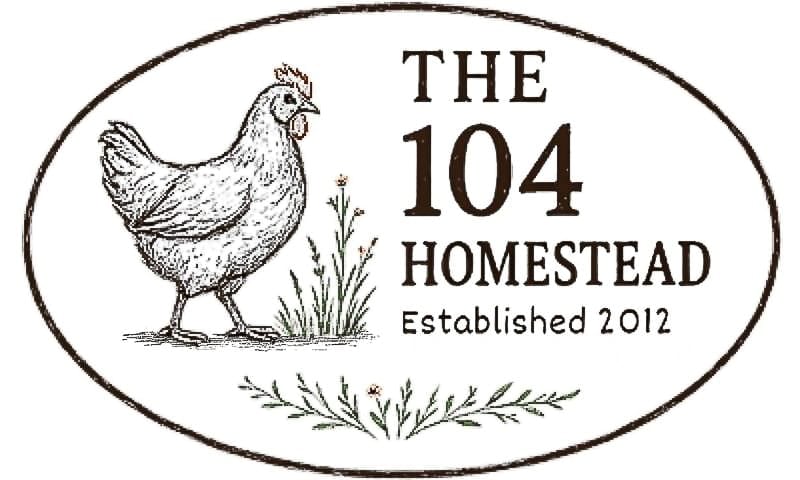Choosing the Best Livestock Guardian Animal for Your Homestead
Discover the best livestock guardian animals for your homestead. Compare dogs, donkeys, llamas, alpacas, and geese to protect your animals.
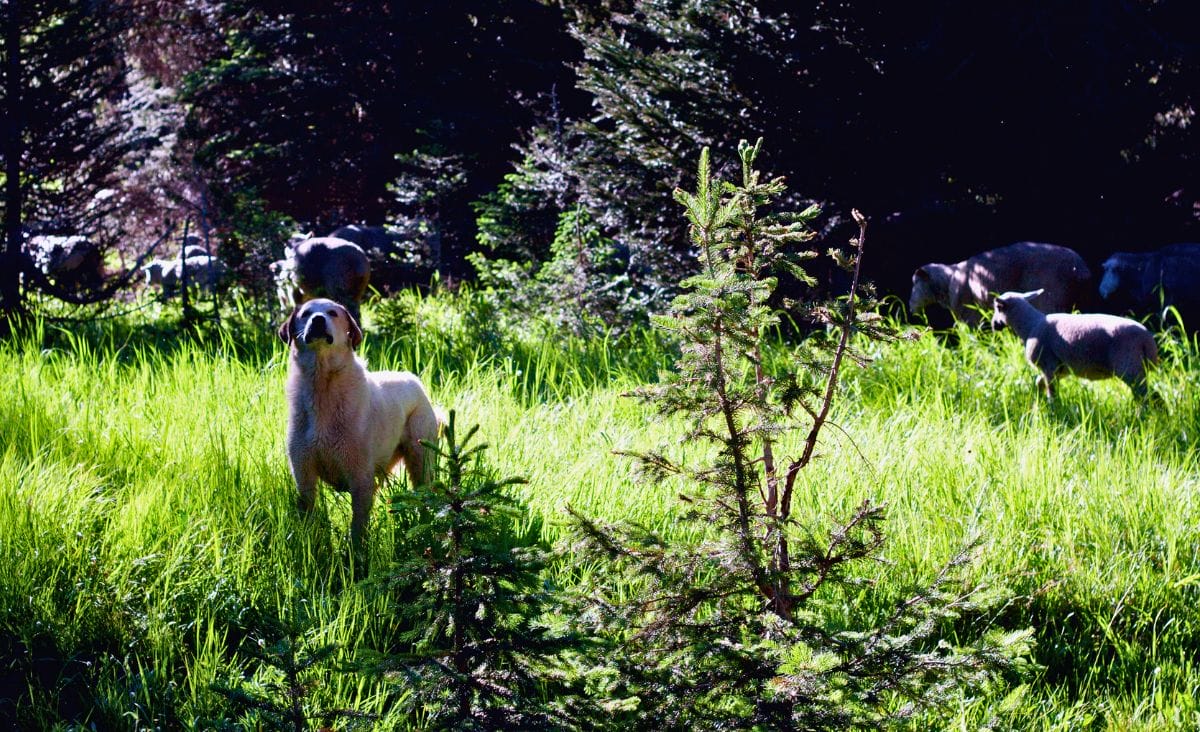
Protecting your livestock from predators is a crucial part of homesteading, but with so many livestock guardian animals (LGAs) to choose from, how do you know which is the right fit? Each animal offers unique strengths and abilities, making it important to match the right guardian with your needs.
In this guide, we’ll break down the top livestock guardian animals—dogs, donkeys, llamas, alpacas, and geese—and explore their strengths, weaknesses, and ideal use cases. Whether you’re raising chickens, goats, or cattle, this article will help you make an informed decision so your animals stay safe and your homestead thrives.
What Are Livestock Guardian Animals?
Livestock guardian animals are working animals naturally inclined or trained to protect livestock from predators. Unlike pets or herding animals, these guardians form strong bonds with the herd and use their instincts to ward off threats, providing essential security for your livestock.
The most common livestock guardian animals include:
- Livestock Guardian Dogs (LGDs): Breeds like Great Pyrenees and Anatolian Shepherds are renowned for their vigilance and ability to actively confront predators.
- Donkeys: Known for their territorial nature, loud braying, and ability to deter predators with their size and strength.
- Llamas: Social and alert, llamas are excellent at spotting predators and sounding the alarm.
- Alpacas: Similar to llamas, alpacas bond well with smaller livestock like sheep and use their alertness and size to deter medium-sized predators.
- Geese: These vocal and territorial birds act as an effective early-warning system for poultry and smaller livestock.
Each of these animals brings unique strengths to your homestead, allowing you to choose or combine guardians based on the specific needs of your livestock and environment.
Livestock Guardian Dogs
Livestock Guardian Dogs, like the Great Pyrenees or Anatolian Shepherd, are best suited for medium to large homesteads with ample space for them to patrol. These dogs are highly active, territorial, and require a lot of room to roam. They thrive on large properties where they can bond with livestock over a wide area and perform their duties of deterring predators. They are best at protecting sheep, goats, cattle, chickens, and other livestock from a wide range of predators, including coyotes, foxes, bobcats, and bears.
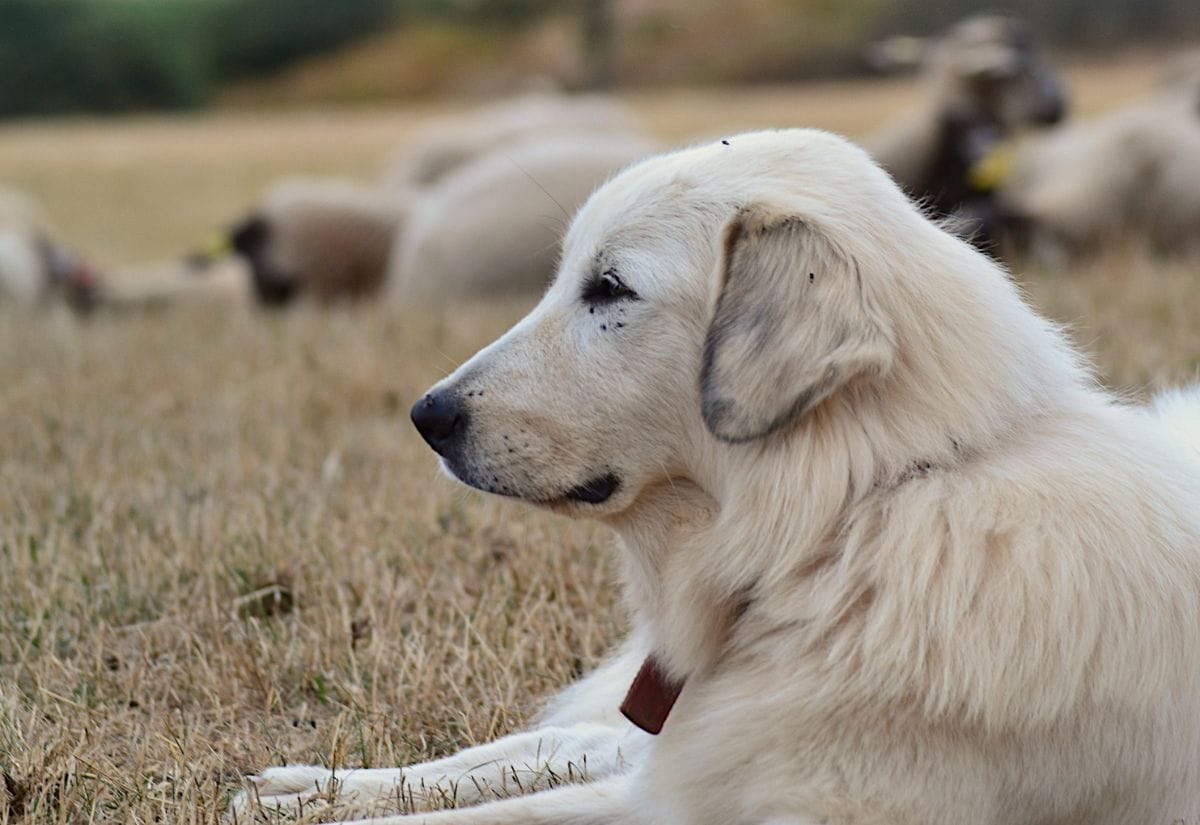
Pros:
- Highly effective: Bred specifically to guard livestock, they’re excellent at identifying and repelling predators.
- Versatile: Can guard a variety of livestock, from poultry to large animals.
- Nighttime protection: LGDs are especially active at night, when predators are most likely to strike.
Cons:
- Training required: They need proper socialization and training to bond with livestock and learn their role.
- Feeding costs: Large breeds can be expensive to feed.
- Roaming tendency: Without proper fencing, they may wander off in pursuit of predators.
Which LGD is right for me?
Some dog breeds are specifically bred for livestock guarding and excel at the role. Popular LGD breeds include the Great Pyrenees, known for their gentle nature with livestock and fierce protection against predators, and the Anatolian Shepherd, prized for their independence and strength. Other notable breeds include the Maremma Sheepdog, Kangal, and Akbash, all of which are highly effective guardians depending on your climate and predator threats.
Donkeys
Donkeys are ideal for small to medium homesteads, particularly where they are used to protect smaller livestock like sheep, goats, and chickens from medium-sized predators like coyotes, foxes, and dogs. They are territorial and tend to bond well with their herd, but they do best on properties with a few acres of pasture for grazing. Donkeys are also great for homesteads that don’t have the space for a larger guardian animal but still need reliable protection.
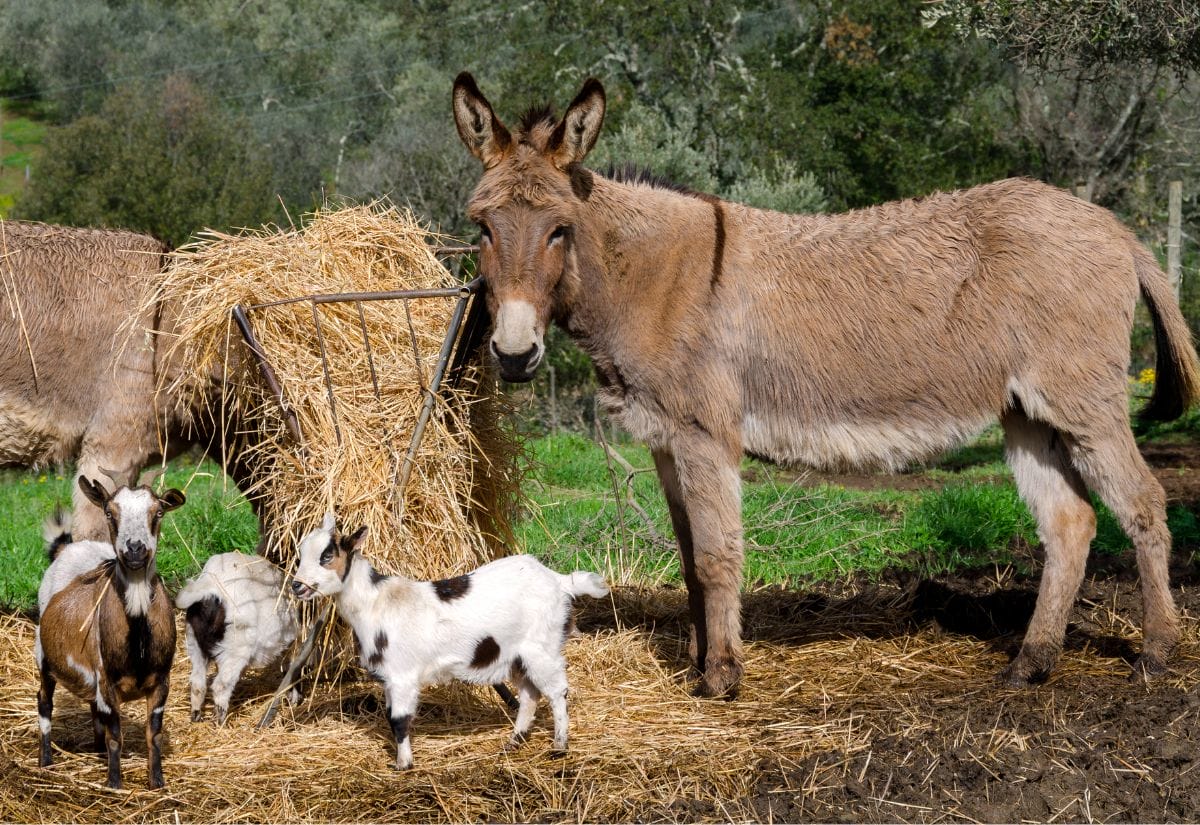
Pros:
- Low maintenance: Donkeys eat the same feed as grazing livestock, so there’s no need for special diets.
- Loud braying: Their vocalizations scare off predators.
- Aggressive deterrence: Donkeys will kick and chase predators out of their territory.
Cons:
- Limited range of protection: Not suitable for smaller animals like poultry.
- Behavioral challenges: Some donkeys may become aggressive toward the animals they’re supposed to protect.
- Lone guardians: Donkeys work best as single guardians and can become territorial toward other donkeys.
Which donkey is right for me?
There aren’t specific breeds of donkeys bred exclusively for guarding, but standard donkeys and mammoth donkeys are generally better suited than miniatures for predator deterrence due to their size and strength. Standard-sized donkeys are the most common choice as they strike a balance between being large enough to intimidate predators and small enough to manage easily on most homesteads.
Llamas
Llamas are perfect for smaller homesteads, especially those that raise sheep or goats. They are social animals that enjoy being around their herd, making them well-suited for properties that don’t require extensive space. They are best at protecting sheep, goats, and small to medium livestock from predators like coyotes and foxes. Llamas can handle some level of predator pressure and can act as a deterrent, but their primary role is more of an alert system. They’re best on homesteads where the predator threat is manageable but still needs attention.
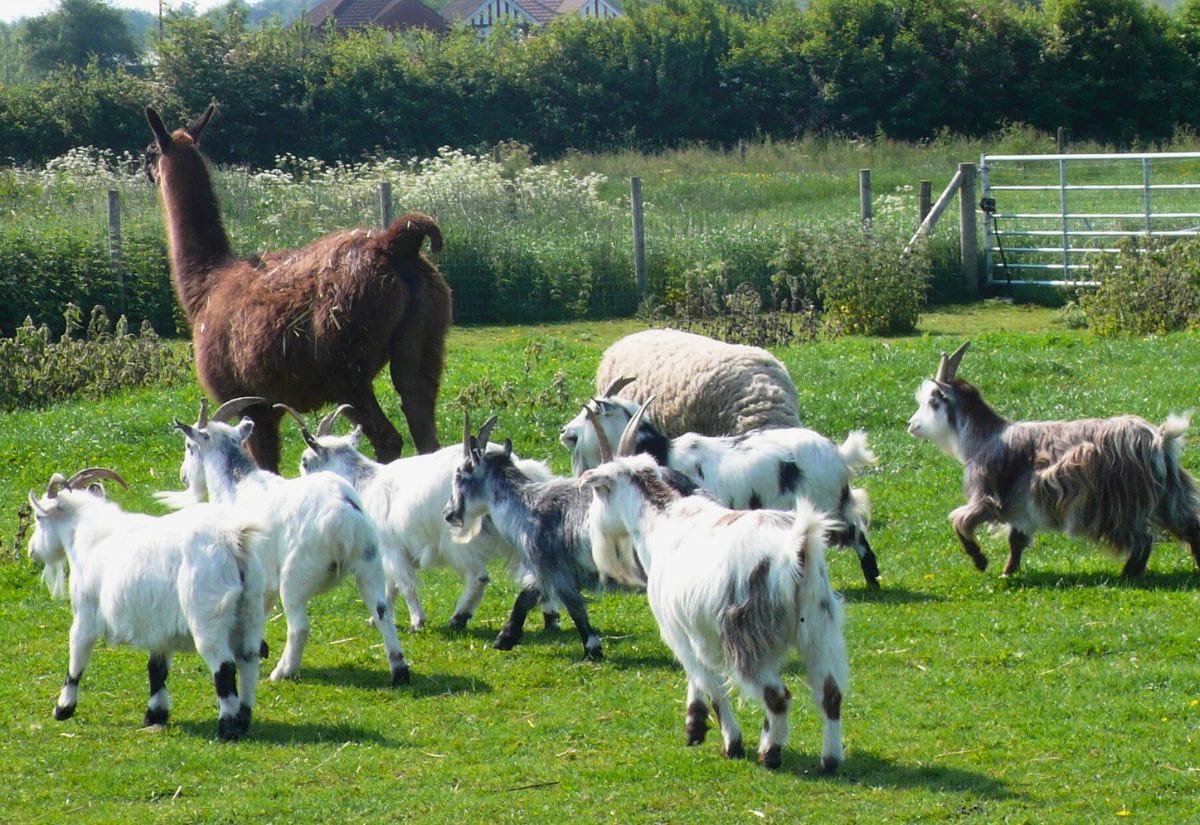
Pros:
- Natural instincts: Llamas are naturally alert and will sound an alarm call when predators approach.
- Social: They bond well with livestock, particularly sheep.
- Low maintenance: They require little care beyond standard feed and shelter.
Cons:
- Not aggressive: Llamas rely more on intimidation and alarm calls than physical aggression, making them less effective against larger predators.
- Size limitations: Their size can make them vulnerable to larger predators like bears or mountain lions.
- Single purpose: Llamas do not double as herding animals and cannot protect a wide range of livestock.
Should I get a male or female llama?
While most llamas are naturally inclined to protect livestock, gelded males (castrated males) are typically preferred as guardians because they tend to be less aggressive and more focused on the herd. Females can also be used but may bond less strongly with the livestock. Llamas are generally not divided into specific guarding breeds, as their effectiveness comes from temperament rather than breed.
Alpacas
Alpacas are similar to llamas in terms of size and temperament, and they thrive on small to medium homesteads. They are best for protecting smaller livestock like goats and sheep, as they are more effective against smaller predators such as foxes, coyotes, or birds of prey. Alpacas require less space than LGDs or donkeys but still benefit from a few acres of pasture to roam. Their alertness and ability to bond with livestock make them ideal for smaller homesteads that raise more delicate animals.
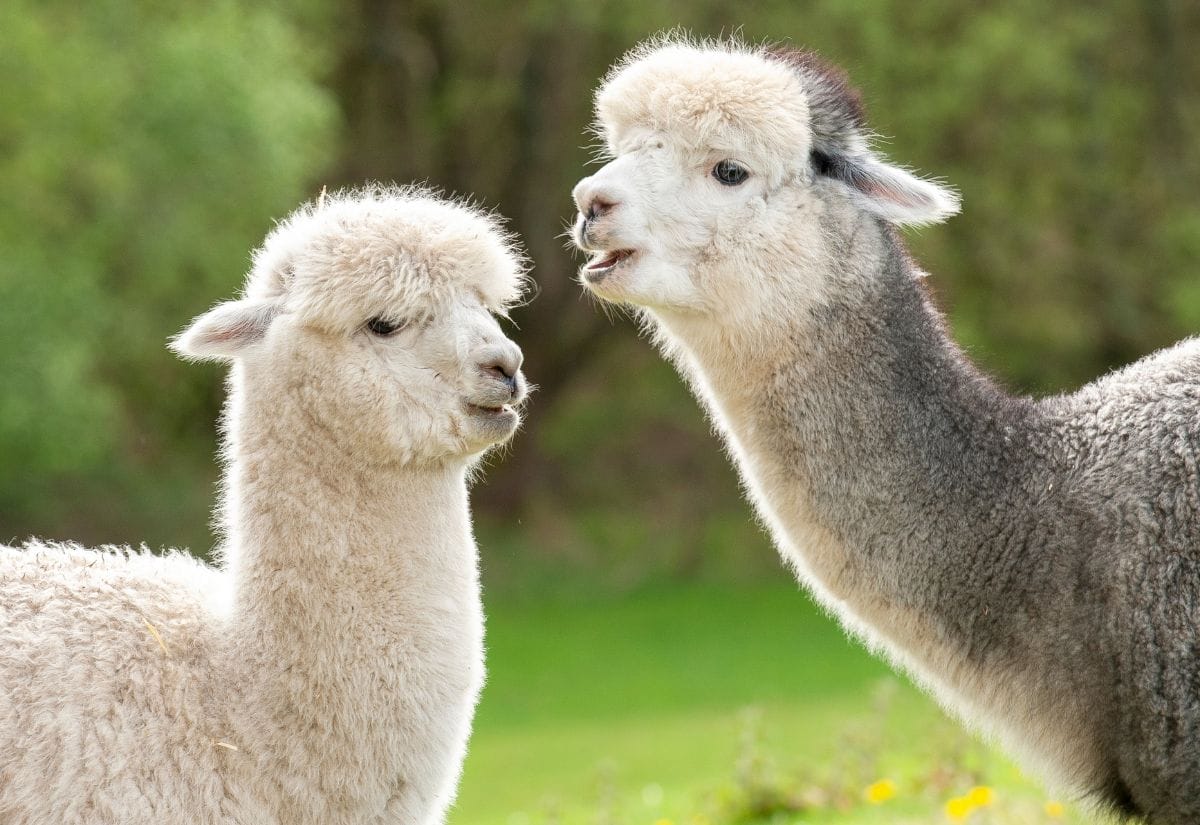
Pros:
- Low maintenance: Like llamas, alpacas are hardy and easy to care for, with simple feed requirements.
- Bonding: They form strong bonds with smaller livestock, especially sheep, and are naturally protective.
- Intimidating presence: Their larger size and curious nature can deter predators.
Cons:
- Non-aggressive: Alpacas are more alert than defensive, relying on alarm calls rather than physical action.
- Limited protection: Not suitable for large predators like bears or mountain lions.
- Social animals: Alpacas need the companionship of at least one other alpaca to remain stress-free and healthy, which adds to costs.
Are all alpacas suitable as guardians?
Alpacas are not bred specifically for guarding, but their temperament and effectiveness vary among individuals rather than breeds. Gelded males are typically more suitable than intact males or females, as they are less likely to display dominance behaviors. Larger breeds of alpacas, such as the Huacaya, are often preferred due to their dense coat and hardy nature, though any alpaca with a calm disposition can serve well in the role.
Geese
Geese are ideal for small to medium homesteads, particularly those that focus on poultry. Geese are excellent alarm systems and will raise a ruckus whenever they sense danger. They don’t require a large area to patrol, making them perfect for smaller properties. Geese are best for those who need an extra layer of protection for chickens, ducks, or smaller fowl and who prefer a low-maintenance guardian.
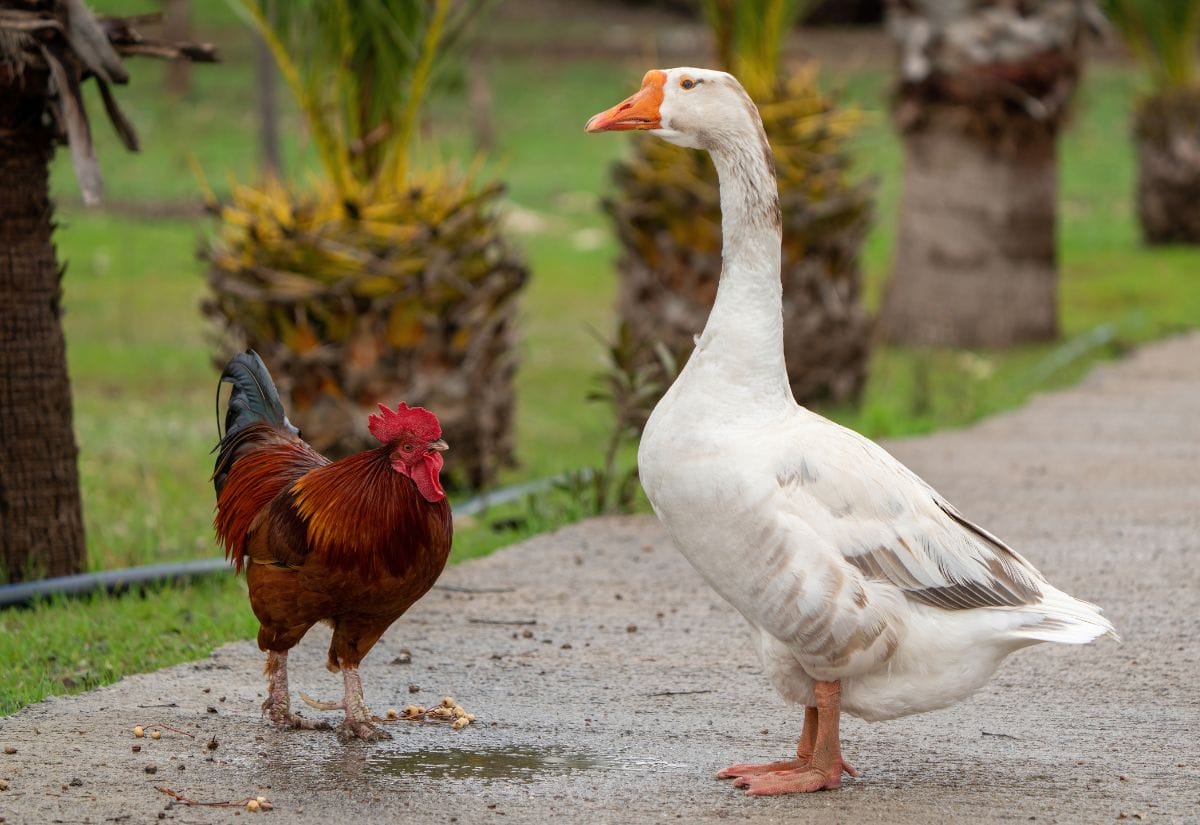
Pros:
- Excellent alarms: Geese are highly vocal and will honk loudly when they detect intruders.
- Aggressive behavior: They are known to confront smaller predators like foxes or raccoons.
- Inexpensive: Geese are much more affordable than larger LGAs and have lower maintenance costs.
Cons:
- Limited defense capability: Geese are no match for larger predators like coyotes or bobcats.
- Territorial behavior: They may become aggressive toward other animals or humans if not properly socialized.
- Weather sensitivity: While hardy, geese require extra shelter and care in extreme cold or heat.
Which goose breed brings the heat?
Certain breeds of geese are naturally more alert and protective than others. African Geese and Chinese Geese are particularly aggressive toward intruders and make excellent guardians for poultry. Embden Geese and Toulouse Geese are also commonly used, as they are larger breeds with strong honking instincts that act as natural alarm systems. However, African and Chinese breeds are often the most effective for active predator (and unwelcome visitor) deterrence.
Combining Livestock Guardian Animals
For larger or more diverse homesteads, combining LGAs can provide comprehensive protection. For example, pairing a livestock guardian dog with a donkey can ensure 24/7 coverage and added layers of defense. Just be sure to introduce them carefully to avoid territorial disputes.
Things You Should Know About Adding a LGA to Your Homestead
- Choose the Right Animal for Your Needs: Different livestock guardian animals (LGDs, donkeys, llamas, alpacas, geese) have unique strengths. Consider the size of your homestead, the types of predators in your area, and the livestock you need to protect before deciding.
- Proper Training is Essential: Livestock guardian animals need time to bond with their herd and learn proper guarding behavior. This is especially true for LGDs, which often require months of training and supervision.
- They Need Time to Bond with Livestock: Whether it’s a dog, donkey, llama, alpaca, or goose, these animals thrive when they form a strong bond with the livestock they are protecting. This requires intentional integration and patience.
- Predator-Specific Suitability: Not all guardians are effective against every type of predator. For example, geese are effective against small predators like weasels, while donkeys excel at deterring coyotes and stray dogs. LGDs are often the best choice for diverse predator threats.
- They Require Their Own Care and Maintenance: Livestock guardian animals need proper shelter, food, vaccinations, and veterinary care. They are working animals, but their health and well-being are critical to their effectiveness.
- Not All Animals Work Well Together: Some livestock guardian animals, such as llamas or donkeys, may be territorial and not coexist well with others, particularly LGDs. Plan for how they will interact with existing animals on your homestead.
- Understand Their Natural Instincts: Each type of livestock guardian animal has instincts that influence how they protect. LGDs patrol and confront predators, donkeys and llamas use physical intimidation, and geese sound alarms to scare predators away.
- They Aren’t Always Friendly to Strangers: Many livestock guardian animals, especially LGDs and donkeys, can be wary of unfamiliar people or animals. This is a natural protective behavior but may require management when guests or new animals visit your property.
- They Can Still be Vulnerable to Predators: While effective, livestock guardians are not invincible. For example, donkeys and llamas can be outnumbered by predator packs, and geese can be targeted by larger predators.
- Plan for the Costs: Adding a livestock guardian animal involves upfront costs for purchase and ongoing expenses like food, fencing, and vet care. Be prepared to invest in their upkeep.
- Legal Considerations May Apply: Some areas have regulations regarding the use of livestock guardian animals, particularly LGDs, due to noise or wandering. Ensure you’re compliant with local laws before introducing them.
- They Work Best as Part of a Broader Strategy: A livestock guardian animal alone may not be enough to fully protect your herd. Combining them with secure fencing, motion lights, and other predator deterrents will maximize effectiveness.
- Training and Socialization Vary by Species: LGDs require extensive training to avoid harming the animals they protect, while llamas, alpacas, and geese tend to rely more on natural instincts. Understand the level of training required for your chosen guardian.
- Some Animals are More Suited to Small Farms: Geese, for instance, are ideal for small poultry flocks, while LGDs and donkeys are better for larger homesteads or open pastures.
- Integration Takes Time: Adding a new guardian animal requires patience. It may take weeks or months before they fully adapt to their role and surroundings.
By understanding these considerations, you can choose the best livestock guardian animal for your homestead and ensure their success in protecting your animals.
Your Livestock Guardian Animal Questions Answered
Pin this guide to find the perfect livestock guardian for your farm!
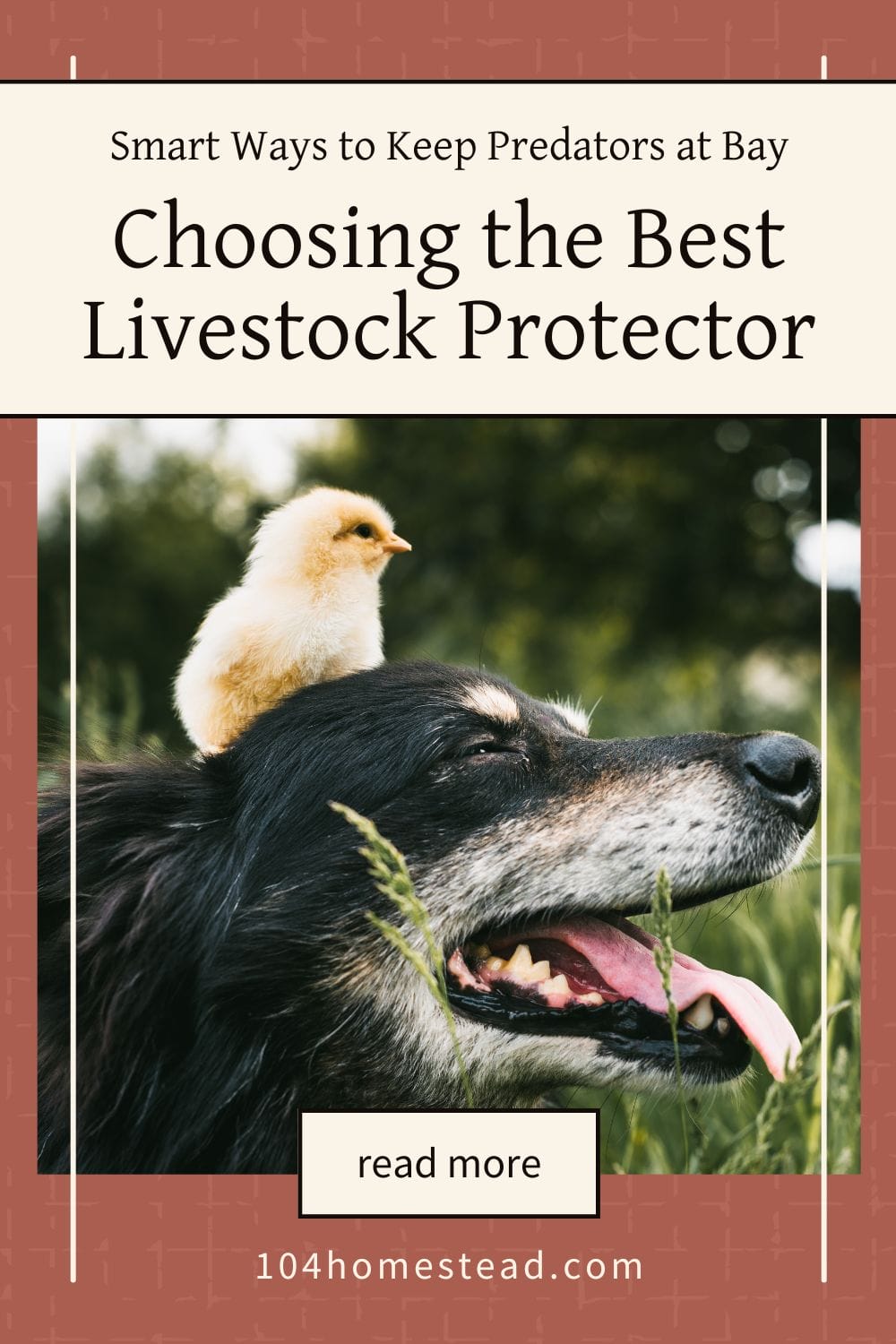
Choosing the right livestock guardian animal is a critical decision that depends on your homestead’s needs, the types of livestock you raise, and the predators in your area. Whether you opt for a loyal livestock guardian dog, a fearless donkey, or an alert llama, each guardian brings unique benefits to the table.
Keeping your homestead safe from predators takes a multi-layered approach. If you’re dealing with local threats, learning how to identify and deter common predators in your area can make a big difference. For smaller animals like chickens, specific strategies like secure coop designs and proper fencing can help keep them out of harm’s way. And don’t forget about the role of barn cats—they can be an invaluable addition for controlling pests and alerting you to unusual activity around your property.
Which livestock guardian animal do you think would work best for your homestead? Let me know in the comments—I’d love to hear about your experiences!
